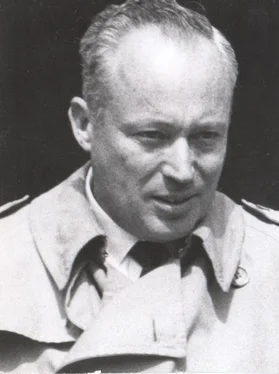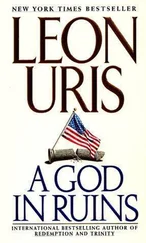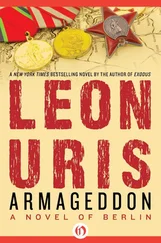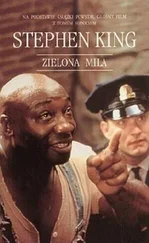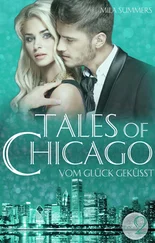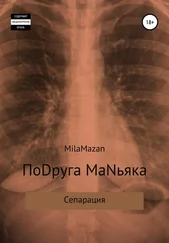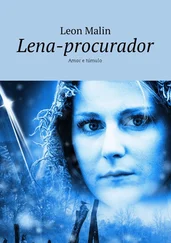Andrei stood at the farthest edge of the forest, holding Batory’s reins. “Well, boy, we’re in it now,” he said to his horse. “That wasn’t so bad after all the times we’ve practiced it, was it? Too damned easy, if you ask me. Wish we had an alternative to this position. ... Well, we’re committed now. Have to hold them off this road. Think we can keep this position? Sure we can. They’ll never get another attack organized today. Easy, boy.”
Blam!
An explosion went off at the foot of the knoll, very close to the road, and another and another.
“Styka!”
It was long-range cannon fire. Where? A half dozen more shells exploded, walking up the knoll. Andrei looked at his watch. Only forty-eight minutes since he had regrouped for the attack.
Blam! Blam! Blam! Blam!
“Over there,” Andrei said. He pointed in the direction of East Prussia. A dozen iron-treaded monsters were crossing the field, their cannons probing the forest. Andrei grunted. Radio communication and long-range guns had turned a good defensive position into a trap within minutes. Was he going to pay with interest for his ambush? He looked at his pair of puny mortars. They would be unable to reach the tanks until they were fairly near the road. The Germans could lay back out of range and blast them to pieces if they chose. Break for it, maybe? No, dammit never!
The cannon fire began to find the edge of the woods. The line of horsemen began to waver. “Steady there!”
Two of the tanks reached the road.
“Mortar fire!”
The mortar shells bounced around the tanks. One scored a direct hit. They did nothing to deter the German barrage.
Good God! Andrei thought. How can I stop them?
... four-five-six-seven-eight-nine-ten-eleven-twelve. All the tanks were in position now, hitting them from three hundred meters.
“Dismount! Take your horses back and hitch them! Form a staggered firing line.”
Blam! Blam! Blam! Blam!
Barks of thin trees burst into flame. A dozen horses cried in terror and several broke from the woods. Company A hid behind the cover of the trees. Only Captain Androfski and Batory stayed forward to observe.
The German tanks groaned into motion toward the bottom of the knoll. “Machine gunners! Give it to them. Shoot for the turrets!”
The machine guns hit into the tanks, and their bullets bounced off like annoying little ant pricks.
“Captain! Airplanes!”
The black vultures streaked over the treetops and screamed down on the woods. The planes flew low, dropping fire bombs, and the woods went up like a torch. A second flight of planes vomited ten thousand machine-gun bullets into them. The instant they passed, the tanks started again. Now truckloads of infantry unloaded, forming up behind the tanks.
“To your horses!”
Gagging and choking and bleeding, what was left of Company A found what was left of their mounts.
“Charge!” Andrei screamed. Batory, his black mane flying in defiance, led the broken and pathetic line of Ulanys down the knoll and into the German tanks. Andrei’s terrible anger could see only the infantry men behind the tanks. I’ll get them! I’ll get the bastards!
His men were blasted from their saddles before they had gone fifty meters. Andrei whipped around and dragged them to their feet and pulled them on their horses and tried to reorganize the attack. There was nothing left. It was a rout. They went back into the forest, with their captain after them, cursing them to make one more try.
Now the tanks inched forward up the knoll, German infantrymen crouched low behind their iron cover. The line of steel came within a hundred meters—point-blank—and let go again, and the infantry fanned out between the tanks.
In the woods there was the smell of burning flesh and burning wood and the sounds of screaming men and screaming horses. All was havoc. For ten, fifteen, twenty minutes Andrei was able to rally his men to hold the German infantry. He kicked them to their feet and tried to set them on their horses again, but they were bombed from the saddles and gunned and burned with methodical indifference.
And then he staggered around blindly as a cloud of smoke hit him in the face, and he cried for Batory and felt his horse and struggled into the saddle. “Come on, boy! Let’s get them!”
He spurred the animal toward the Germans, then he whirled about and the world began to spin, and when he opened his eyes he felt as though his chest were being crushed and all he could see was the blue sky above him and the tops of the burning trees whirling and whirling. Andrei thrashed about on his hands and knees, semi-conscious, crawling to Batory. “Batory! Get up! Get up, boy! Don’t lay there! Get up! Let’s kill them!”
First Sergeant Styka knelt over Andrei and shook him violently. “Captain, we are finished! Get up, sir! I have two horses. We must make a run for it, sir!”
Andrei lifted the dead horse’s head in his hands. “Batory! Get up!”
“Sir, your horse is dead! Nearly all the men are dead!”
The big soldier dragged Andrei to his feet. Andrei broke loose from his grip and kicked his lifeless animal. “Get up, God damn you! Get up! Get up! Get up!”
Chapter Eleven
HUMANITY HAD BEEN ENDOWED by the German people with their Beethovens and Schillers and their Freuds and the dubious gifts of a Karl Marx. Now the German people presented humanity with a new set of authors—General von Bock, General von Küchler, General von Kluge, General von Rundstedt, General von Blaskowitz, General List, General Haider, General von Brauchitsch. General von Reichenau. The book they wrote presenting mankind with a new innovation of German culture was called Blitzkrieg, lightning war.
Poland formed a huge bulge which fitted into the open jaws of Germany, with Prussia on the north, a common border of many hundred kilometers from the Baltic to Krakow, and in the south newly raped Czechoslovakia beyond the Carpathian Mountains.
The jaws bit down, and saber teeth in the form of armored columns tore deeply into the flesh of Poland. The Poles, arrogant and stubborn and filled with foolhardy national pride and an offensive-minded Polish Staff, doomed whatever small chance there may have been for some sort of stand.
Forgoing logic, Poland did not fall back on her few natural defensive river barriers. Instead, she dreamed in vain of holding a fifteen-hundred-mile border whereon the enemy chose his points of attack. She had further vision of making a counterattack in the form of a hell-bent-for-leather cavalry charge.
Poland’s forces were all but immobile, armorless and antiquated, her arsenal better suited to war five decades earlier. Sustained by raw courage, Poland asked the horse to fight the tank.
German land forces ran double and triple envelopments, executed picture-book tactics; massacred, trapped, overwhelmed, sliced, overpowered the near-defenseless but proud enemy. The new book called for the disregard of even the token humanities customarily observed in the organized art of murder known as war.
Death spewed from the skies.
Within hours of the German border violations, the Polish air force, tiny and outdated, was shot to pieces on the ground. Within hours, rail lines were ripped up and supply dumps smoked skyward and hot bridges sizzled as they buckled into rivers. Cities and villages without so much as a gun to fire were leveled into smoldering rubble heaps.
The Luftwaffe, which had learned to violate open cities in Spain, turned all of Poland into one big turkey shoot. It shot down Polish troops fleeing for cover and Polish peasants working in the fields and Polish children in the schoolyards and Polish women nursing in maternity hospitals and Polish nuns at Mass.
Through the Carpathians from Czechoslovakia, List shoved his armor through the mountain passes and turned the Krakow flank at that place where the Gleiwitz radio station hoax was perpetrated. In the center, Reichenau was given the honor of unleashing the greatest mass of iron-treaded monsters, and on his left Blaskowitz enveloped a pocket on the flatlands near the industrial heart of Poznan. And Von Bock and Von Küchler lashed out from northern flanking positions in Prussia and Pomerania and there was no more pesky Polish Corridor.
Читать дальше
